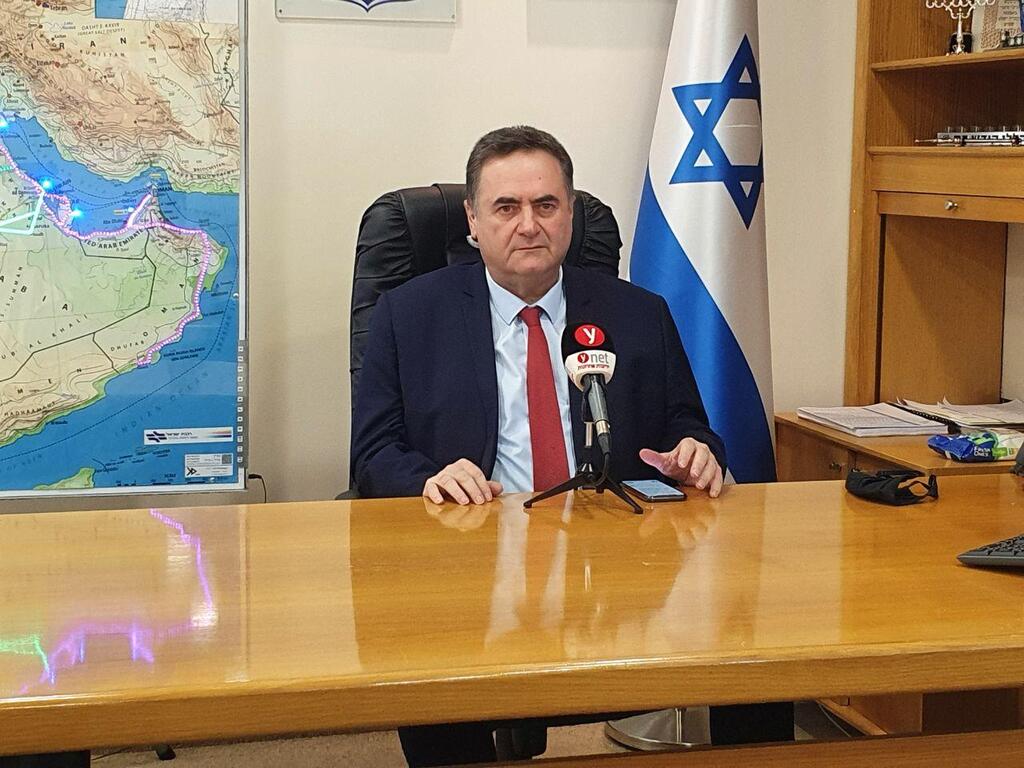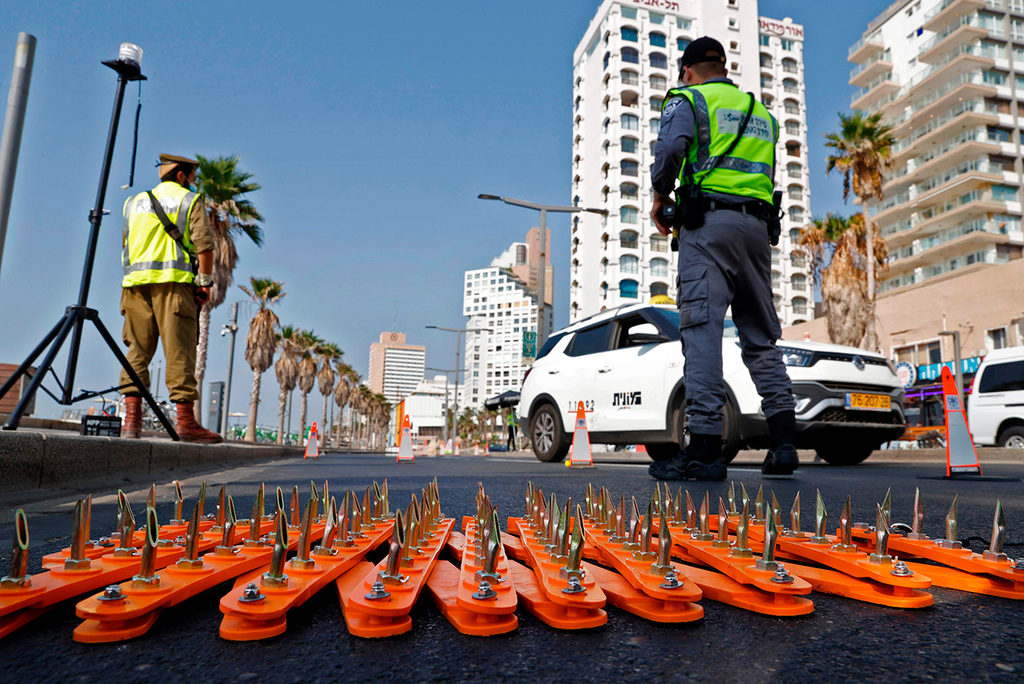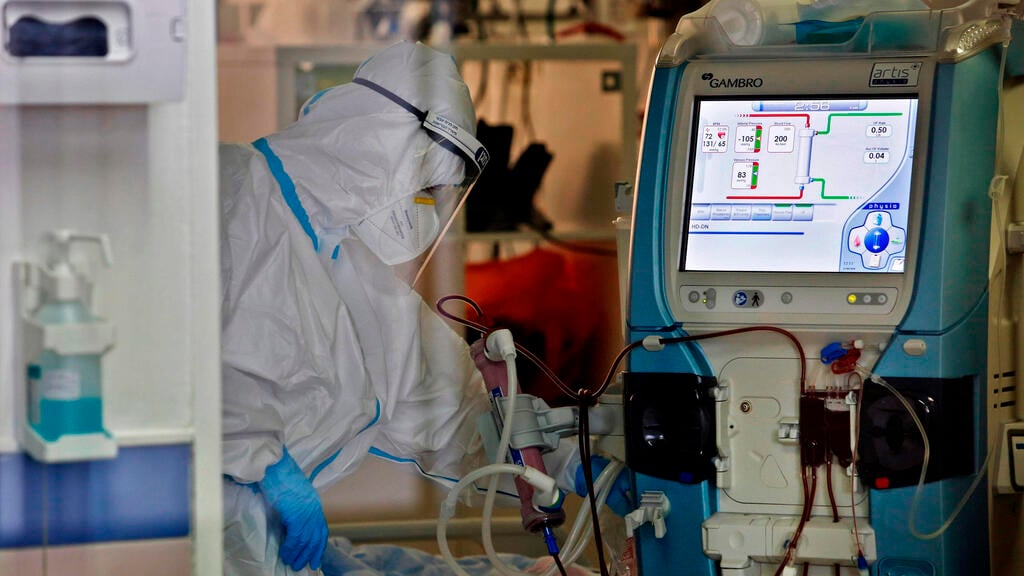Getting your Trinity Audio player ready...
The government approved Thursday morning a full coronavirus lockdown which is set to take effect from this coming Friday until after the Jewish holiday season in mid-October.
During an overnight government meeting that dragged out until the morning hours, ministers voted for tightening an already standing three-week lockdown and health regulations restricting public gatherings.
10 View gallery
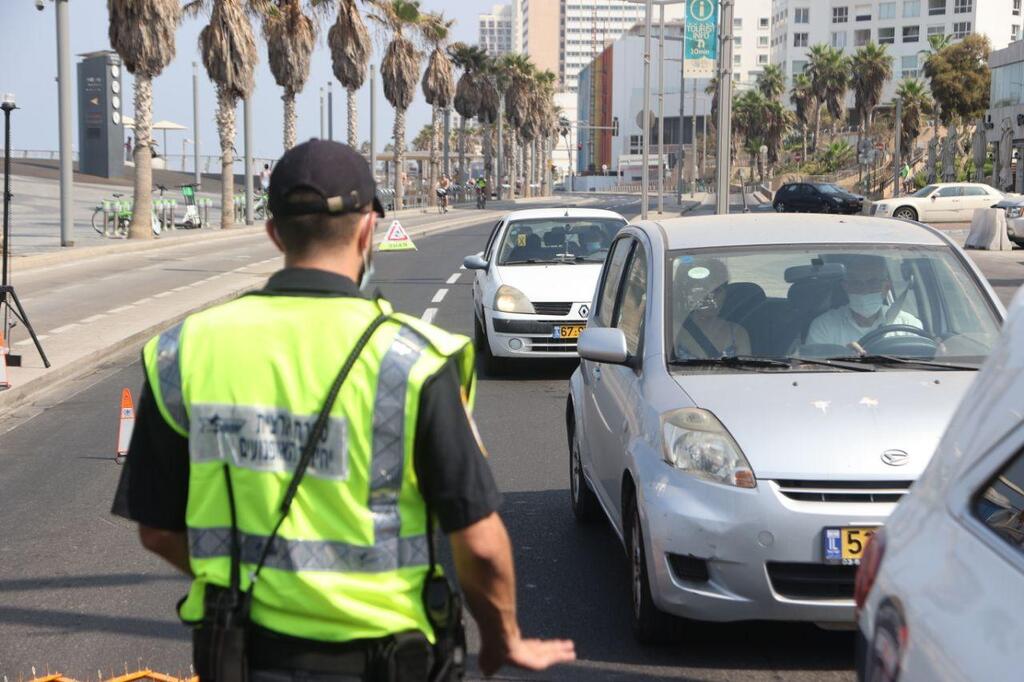

Archive/Police checkpoint in Tel Aviv during coronavirus lockdown
(Photo: Moti Kimchi)
Despite opposition from coronavirus czar Prof. Ronni Gamzu, Finance Minister Israel Katz and Bank of Israel Governor Amir Yaron, all "non-essential" factories and services will be shut down during the closure.
"The private sector was not supposed to close down. What is being proposed here now is unprecedented in the world, no country has decided on such measures," said Katz. "The proposal here is not at all similar to March-April [Israel's first coronavirus lockdown], we had the second most severe lockdown in the world and heavy damage was done to the economy."
Chief Economist at the Finance Ministry Shira Greenberg warned on Wednesday that such measures would cost the economy an estimated NIS 35 billion (over $10 billion).
Greenberg also said that if the closure would be extended to a month, it is expected to cost the economy up to NIS 50 billion ($15 billion).
Outdoor prayer services and protests were limited to groups of up to 20 people and no farther than 1 kilometer (0.6 miles) from home. Synagogues will open only on Yom Kippur and are subject to the government's health directives.
With this latest ruling, the government has effectively declared a state of emergency, meaning police officers are now allowed to fine protesters who fail to observe social distancing in public spaces.
Individual sports activities were also limited to one kilometer from home.
Ministers also decided to set up an inter-ministerial committee led by Foreign Minister Gabi Ashkenazi and Transportation Minister Miri Regev that will rule on operations at Ben Gurion Airport, mainly canceling all departures besides cases of emergency.
Public transportation will be reduced to a bare minimum.
The outline for the new restriction was drafted Wednesday night by an alternative cabinet comprised of Prime Minister Benjamin Netanyahu, Defense Minister Benny Gantz, Interior Minister Aryeh Deri, Foreign Minister Gabi Ashkenazi and Justice Minister Avi Nissenkorn, bypassing the Coronavirus Cabinet.
The rest of the members of the Coronavirus Cabinet, which leads the government's response to the pandemic, and Attorney General Avichai Mandelblit were only informed of the agreement after the fact.
Earlier on Wednesday, an argument broke out between Netanyahu and Nissenkorn over further restrictions on protests against the premier that have been taking place outside of his Jerusalem residence in disregard of coronavirus regulations.
For months, demonstrators have been congregating outside the Netanyahu's residence on Jerusalem's Balfour Street to demand his resignation due to his indictments in three graft cases and what they deem to be his bungled handling of the coronavirus pandemic and the subsequent financial crisis – while many of them fail to wear protective face masks and observe social distancing.
10 View gallery
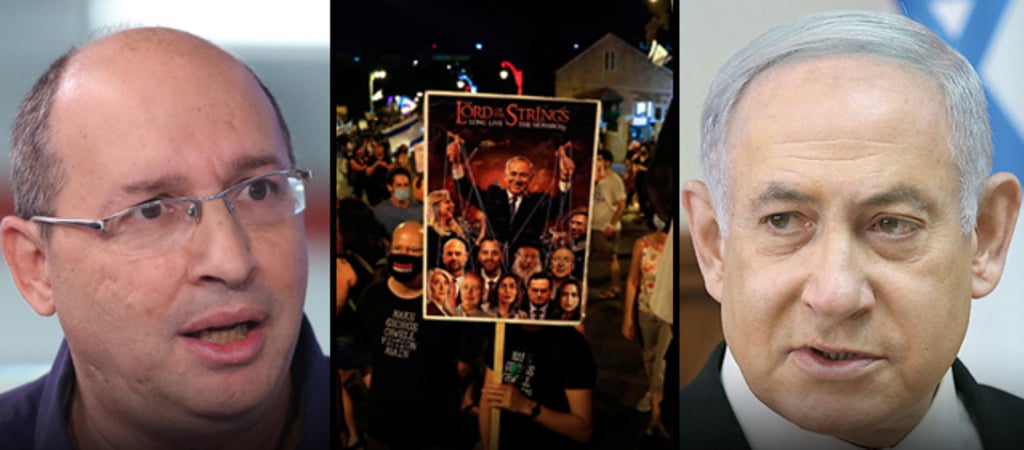

Justice Minister Avi Nissenkorn and Prime Minister Benjamin Netanyahu
(Photo: Avi Moalem, Alex Kolomoisky, AFP)
Nissenkorn blasted Netanyahu's request to impose restrictions on protests, arguing it would make for an undemocratic move meant to curb criticism against the veteran head of state.
"We've agreed to go with [Netanyahu's] proposal and the experts' position to rule a general lockdown in a bid to reduce infections," Nissenkorn said. "But now, you've backtracked on your statements and wish to make a decision that will, in practice, only ban holding demonstrations on Balfour. This would make an illogical and undemocratic move, and it is also wrong for you. We must not deviate from the stance of the professionals."
Netanyahu said in response that leaving the status quo intact would create a loophole that would allow citizens to roam freely under the guise of protest and suggested those who wish to criticize him would do so next to home.
Earlier Wednesday, Netanyahu pushed for the tightening of the newly implemented nationwide lockdown and even mulled declaring a state of emergency.
10 View gallery
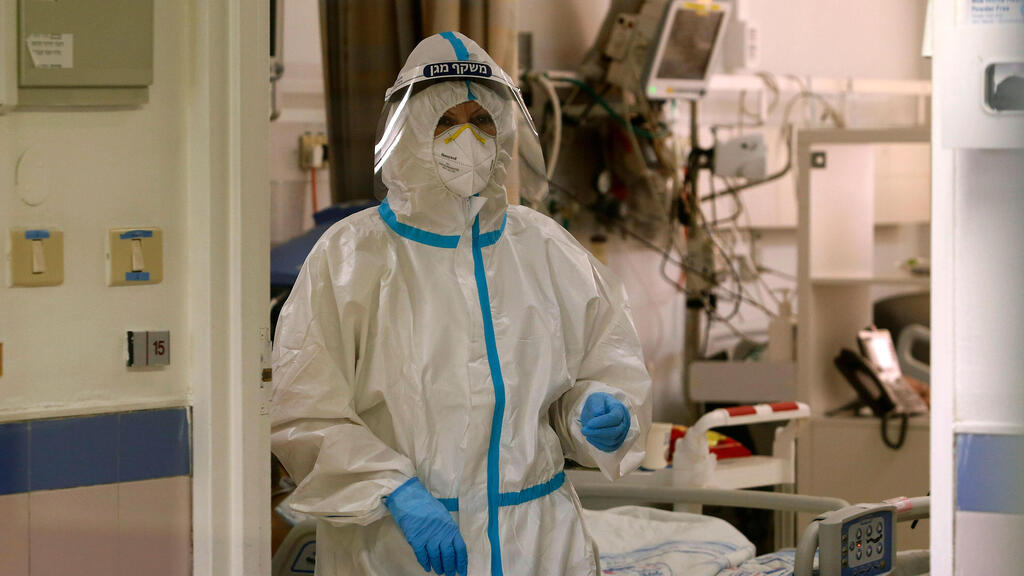

A healthcare professional wears protective gear on the coronavirus ward at Barzilai Medical Center in Ashkelon
(Photo: AFP)
The meeting came hours after the Health Ministry said Wednesday morning that 31 people had died from COVID-19 and 6,923 new cases of coronavirus were registered in Israel in the previous 24 hours, as the raging outbreak showed no signs of slowing.
The meeting, which was scheduled for 11:30am, was pushed back to the afternoon after Netanyahu held urgent consultations with various cabinet ministers.
The prime minister was set to demand a broader closure, immediate and significant tightening of restrictions and shuttering of additional sectors of the economy, including Ben-Gurion International Airport.
Netanyahu was apparently looking for the legal solution to declaring a state of emergency. The attorney general was said to be working on the technical solution to declaring a state of emergency.
10 View gallery
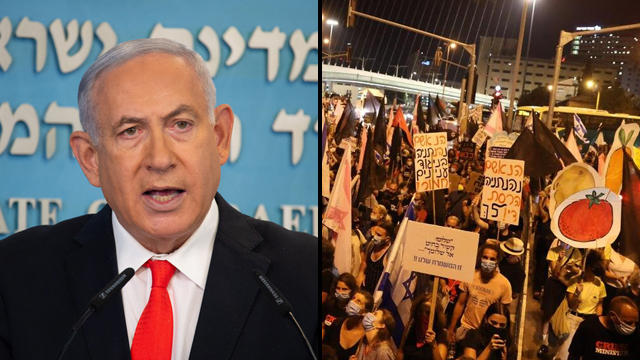

Prime Minister Benjamin Netanyahu and anti-government rally
(Photo: Amit Shaabi, Yoav Dudkevich )
According to government sources, however, Israel Police had already said it would struggle to enforce the restrictions if there were a general ban on all gatherings, including protests and prayers.
"It's a very complex issue and it's going to be a very long night," said one source.
Another government source, however, said Israel is heading for a "total lockdown" with the only question remaining is whether it will happen before or after Yom Kippur, which begins at sundown on Sunday.
"At the moment we want to do it [impose total lockdown] before Yom Kippur, but [Interior Minister] Aryeh Deri is not ready to hear it," the source said. According to the official, "it is not inconceivable that in the end it will be after Yom Kippur."
Israel, a country of some 9 million people, now has one of the world’s highest rates of coronavirus on a per capita basis, and health officials say hospitals are quickly approaching capacity.
The government last week imposed a nationwide lockdown that closed schools, shopping malls, hotels and restaurants.
Deputy Health Minister Yoav Kisch said earlier Wednesday that regulations would have to be tightened in the near future.
10 View gallery
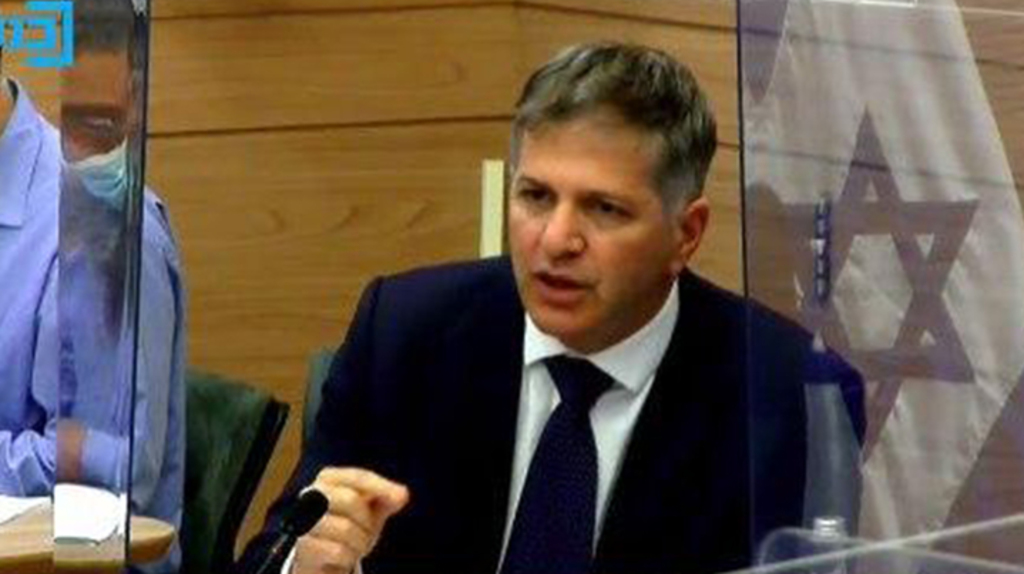

Deputy Health Minister Yoav Kisch speaks at a meeting of the Knesset committee on the coronavirus
(Photo: The Knesset Channel)
“Educational institutions will be closed, the economy will be limited to essential work, synagogues will have no indoor prayers, with arrangements for outdoor prayer, and demonstrations will be allowed without protesters traveling between cities,” he told Channel 12 TV.
“Everyone will demonstrate where he wants, will pray where he wants and will stay at home. That is what is required now.”
Israel won international praise for its handling of the outbreak last spring, moving quickly to seal its borders and impose a lockdown that appeared to contain the virus.
10 View gallery
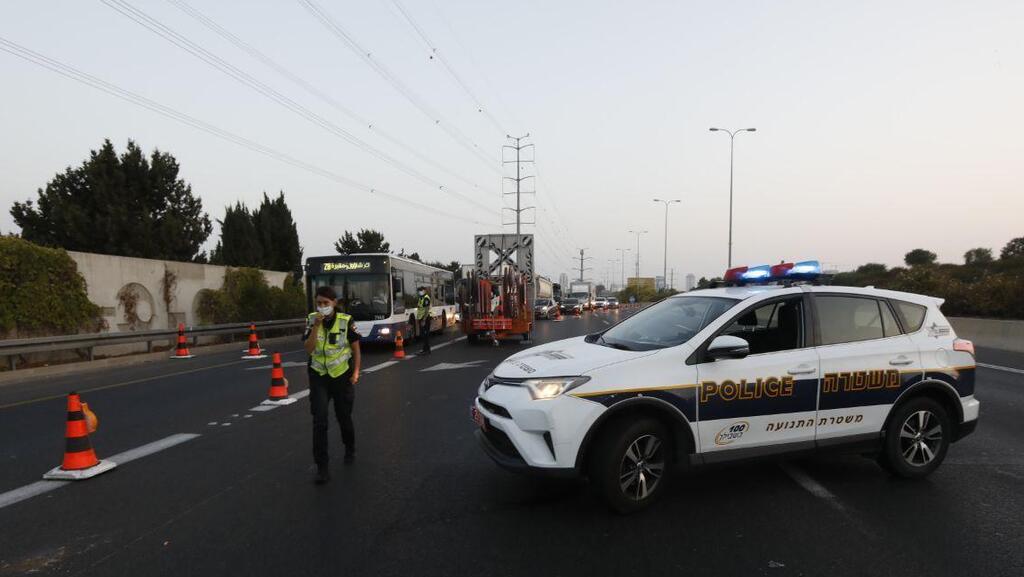

Police implementing the new lockdown measures on Route 4, one of Israel's central intercity arteries
(Photo: Shaul Golan)
But the government reopened the economy too quickly, and a new outbreak has quickly spread throughout the summer. The economy, meanwhile, has not recovered from a serious downturn caused by the first lockdown.
The Health Ministry has instructed hospitals to delay non-essential surgeries and to open additional coronavirus wards as the number of serious cases continues to rise.
Beyond further limiting economic activity, officials have been discussing shuttering synagogues and clamping down on protests — both of which risk sparking a public backlash.
10 View gallery
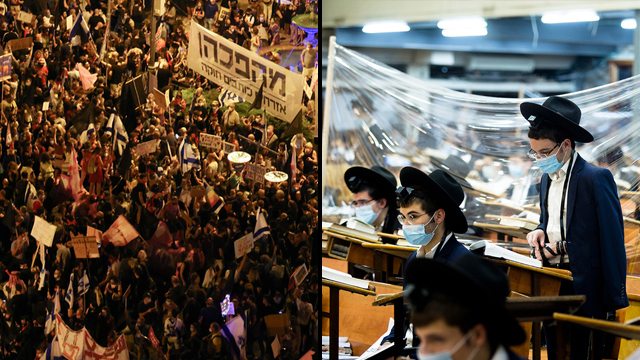

Protesters calling for the resignation of Prime Minister Benjamin Netanyahu, left, and students attending yeshiva
(Photos: AFP, Getty Images)
The limits would come at a time when Jews are celebrating the High Holidays and when weekly demonstrations have been held against Prime Minister Benjamin Netanyahu and his handling of the coronavirus crisis.


